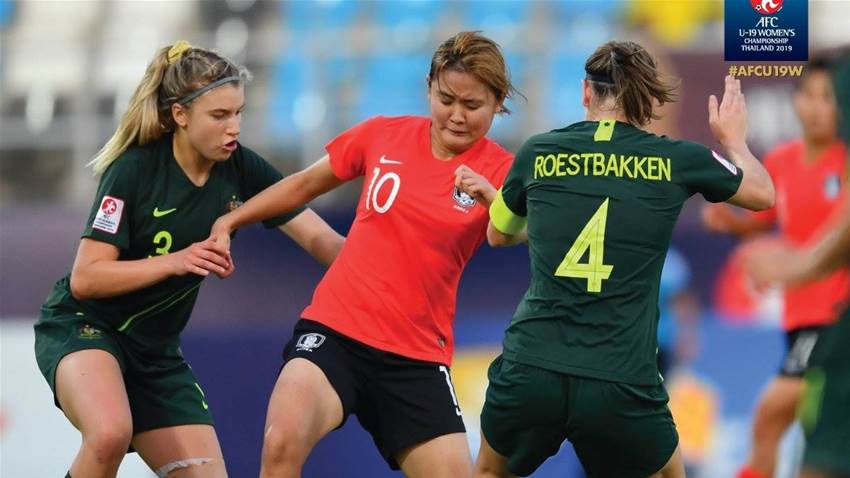The Young Matildas lost 9-1 to the South Koreans. What a gut-wrenching way to bow out of the AFC U/19 Championships and another youth World Cup.
1. WE'RE ON A VERY SLIPPERY SLOPE
We have a world-class national team ranked above any other nation in this competition, the best domestic league in this competition by some margin and a brilliant record of producing elite young players.
So why on earth did we concede 21 goals in three matches against our closest opponents?
If we can't compete with these teams at youth level, but we can compete with them at senior, it can't be because our players aren't good enough. It has to be the way our teams are organised.
One of the major disadvantages we seem to have is the decentralisation of our youth programs. The standard practice in world football is to place the responsibility for developing young players with their clubs.
It's a system that should make sense for us, given the quality of players we attract to the W-League. Surely it's better to have Courtney Nevin training alongside Lynn Williams this year than plying her trade in the Australian Institute of Sport?
But we've seen time and time again, whether it's against North Korea or Bangladesh, that youth teams that are centralised and subject to strict training regimes and camps together become very competitive against us.
But unfortunately, the answer isn't as easy as shipping them all off to Canberra.
Japan have won every AFC U/19 Championship since 2009 and their players don't play in a centralised system. Neither do the South Koreans.
Instead, they follow the same system as us. Their youth players each play for individual clubs, most of whom are linked to men's clubs just like ours. There are several other key factors inherent in this: population, monetary resources, the popularity of the sport.
But once again, when you look at our national team's success, these are all distractions from the real problem.
Ultimately, it has to come down to the quality of the coaching.
At senior level, the Matildas have elite coaches and facilities. They ply their trade in foreign competitions under elite coaches as well. That enables them to compete with the world's best.
Unfortunately, our Young Matildas don't have that. Until we do, we face a very significant risk of declining in Asia and the world the same way our men's team has.
That decline has had a real impact on the popularity of Australian men's football. Given how far we've come to reach the point where women's football is a mainstream sport in Australia, a similar fate would be very devastating indeed.
Related Articles

Ex Man United star Varane signs for Italian club Como

Champion A-League coach set to join Premier League giants













